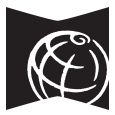Represent Yourself in a Civil Lawsuit: The Seattle Public Library Offers Free Workshops Beginning May 1
release date: April 23, 2019
Representing yourself in court can be a complicated process. Learn the basics of the civil lawsuit process at one of our upcoming workshops from 6 p.m. to 7:30 p.m. Wednesdays, May 1, 8 and 15 at the Central Library, 1000 Fourth Ave, Level 4, Howard S. Wright Family & Janet W. Ketcham Meeting Room 2, 206-386-4636.
Library events and programs are free and everyone is welcome. Online registration is required, see calendar listings to sign up. Parking is available in the Central Library garage for $7 after 5 p.m.
SCHEDULE
Civil Lawsuits without Tears: The Basics of Representing Yourself in Court - This workshop focuses on court rules, court procedures, forms, scheduling and deadlines. Some of the common civil lawsuit types covered will include: landlord tenant, family law, wills and probate, garnishment of wages, personal injury and property disputes.
- 6 p.m. to 7:30 p.m. Wednesday, May 1 - Central Library, 1000 Fourth Ave, Level 4, Howard S. Wright Family & Janet W. Ketcham Meeting Room 2, 206-386-4636.
The Nuts & Bolts of Motions: Advanced Workshop for Self-Represented Litigants - This workshop is for people who have attended the Library's workshop, "Civil Lawsuits without Tears," or for people who need more information about motions and orders. You'll learn about the purpose, content, format and calendaring of motions, along with the court rules governing them.
- 6 p.m. to 7:30 p.m. Wednesday, May 8 - Central Library, 1000 Fourth Ave, Level 4, Howard S. Wright Family & Janet W. Ketcham Meeting Room 2, 206-386-4636.
Exploring Pretrial Discovery - This workshop is for people who have attended the Library's workshop, "Civil Lawsuits without Tears," or for people who need more information on the process for conducting pretrial discovery. You'll learn about: the process of requesting information and documents from the other party and responding to requests, asking and answering interrogatories (written questions to the other party), the basics of depositions, and the court rules governing the discovery process.
- 6 p.m. to 7:30 p.m. Wednesday, May 15 at the Central Library, 1000 Fourth Ave, Level 4, Howard S. Wright Family & Janet W. Ketcham Meeting Room 2, 206-386-4636.
These workshops are taught by The Public Law Library of King County. The workshops will not cover immigration proceedings, or criminal proceedings such as a D.U.I or felony and misdemeanor offenses.
The Library brings people, information and ideas together to enrich lives and build community. We support universal access to information and ideas, and form strong partnerships with community organizations to offer classes and workshops that are accessible to all.

